New terror threat frays American unity
Gone is the grief-fueled solidarity that flowed seamlessly in the immediate aftermath of the 9/11 attacks
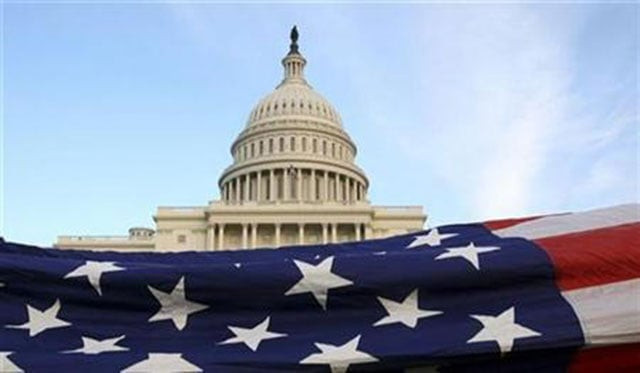
PHOTO: REUTERS
Gone is the grief-fueled solidarity that flowed seamlessly in the immediate aftermath of the 9/11 attacks.
Within minutes of President Barack Obama calling for unity in a landmark Oval Office address Sunday, Republicans made clear they would not, could not, oblige.
Islamic State claims responsibility for Paris attacks
A call to come "together around our common ideals as one nation, as one people," was met by Republican front-runner Donald Trump's response "is that all there is? We need a new president -- fast!"
With less than a year until the November 2016 vote, the spirit of hyper-partisanship is not really a surprise.
"For decades, national security has been that one thing that at least temporarily you could rally people, whether it was jingoism or whatever it was," said Patrick Skinner, a former CIA case officer now with the Soufan Group.
"Now, not even natural disasters can even temporarily unify, even attacks are immediately politicised."
"We can't even agree on gravity," he said.
The emergence of a new style of homespun militant threat has only magnified the divide.
After the much bloodier 9/11 attacks, President George W. Bush rallied the nation behind drastic action, vowing to tackle "the terrorists who committed these acts and those who harbor them."
In less than a month, lawmakers -- Republican and Democrat -- had voted overwhelmingly to take "necessary and appropriate force" and US troops had invaded Afghanistan in a bid to deny Osama bin Laden's Al-Qaeda a safe haven.
Today, there is no such obvious, unifying response. The San Bernardino assailants lived in America, one of them grew up in America and they seemingly had only ideological links with IS.
"There is no airstrike that is going to help San Bernardino," said Skinner. "The fight against Islamic State is a nuanced fight."
Obama has approached the problem in a similar vein, like a malignancy that has to be systematically removed, but one that can only become an existential threat if America responds by undermining its own values.
Father of California shooter says son 'agreed with Islamic State ideology': report
In framing his response, the mistakes of Iraq and Afghanistan wars loom large.
Obama is adamant that becoming enmeshed in another large-scale ground war in a Muslim country would be costly and would only fuel radicalism.
Republicans see Obama dangerously underestimating a group that is deserving of the same action that was meted out against Nazi Germany or the Soviet Union.
"ISIS has become, in the last few years on Obama's watch, the wealthiest, most powerful terrorist network in the history of the world," according to Marc Thiessen, a former Bush speechwriter.
"They have the resources to cause immense damage if they are not pinned down and stopped and their gains reversed."
"Make no mistake," said House Homeland Security Committee Chairman Michael McCaul, "we are a nation at war."
"I believe 2015 will be seen as a watershed year in this long war-the year when our enemies gained an upper hand and when the spread of terror once again awoke the West," he added.
The White House has sought to deflect that kind of comment as "divisive rhetoric" from the campaign trail.
"A lot of these issues are being discussed in the context of a hotly competitive presidential election," said White House spokesman Josh Earnest.
"If we spent a lot of time worried or focused on that, we'd be focused on the wrong thing."
But the policy prescriptions are becoming increasingly difficult to dismiss.
Trump's proposal to ban Muslims from entering the United States is likely to reverberate beyond the echo chamber of the 2016 campaign.
Some within the Republican party privately and ruefully admit that type of strategy is designed to appeal to white evangelicals who make up the base of the party and feel themselves and their religion under threat.
Obama's repeated calls for gun control measures that would have done little to thwart San Bernardino has only fueled that sense of threat.
But many more Republicans say there is genuine anger that Obama has let his guard down in tackling the IS group.
According to Thiessen, "9/11 took the entire country by surprise, today there is a red light flashing and they are putting a piece of tape over it, so people are frustrated."
"I don't think that he ran for this job in order to be commander-in-chief, it's one of the responsibilities, but it wasn't his motivation," he said.
IS claims California couple as its ‘soldiers’
"It's a burden rather than the core of the job."
The deep and increasingly personalised divisions may only make unity and the fight against IS more difficult, experts warn.
"It's better to fight an enemy if you are united, of course we are not the United States right now, we are the divided states," said Skinner.
"I don't know how it gets better."

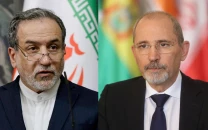

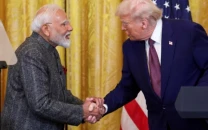
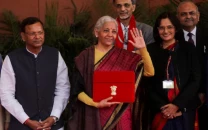
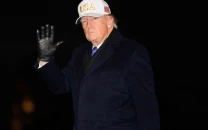
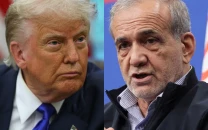












COMMENTS
Comments are moderated and generally will be posted if they are on-topic and not abusive.
For more information, please see our Comments FAQ